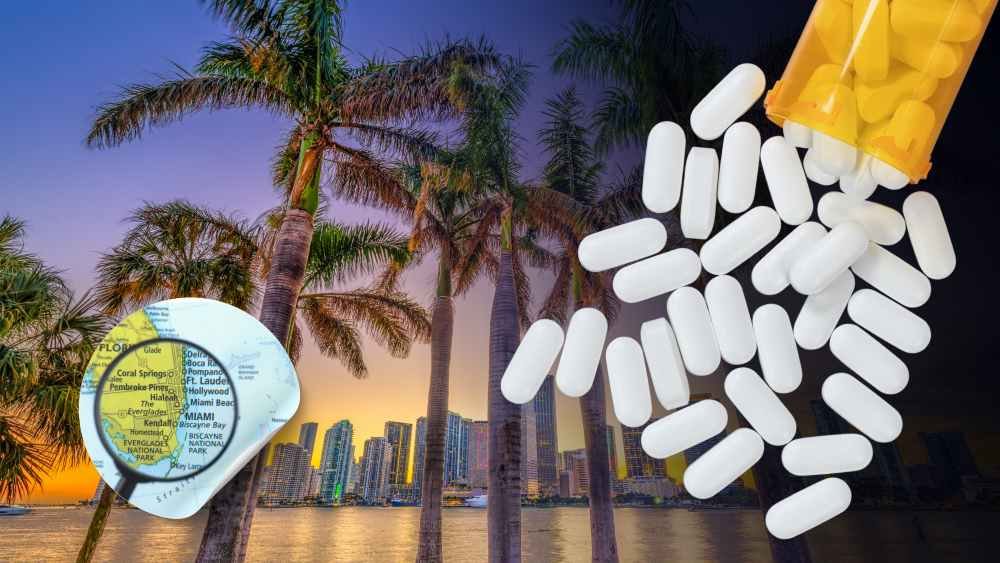The Hidden Opioid Crisis In South Florida

Table of Contents
The unseen opioid crisis in south Florida is bubbling under the surface. While many residents focus on the sun, surf, and sand, a different reality is affecting public health and safety—gas station drugs. This blog post aims to unravel the impact of these substances, shedding light on a critical issue that demands attention. From understanding the types of drugs available at these local spots to exploring their profound effects on health and society, this post provides an in-depth look into a growing concern for Florida residents and health professionals alike.
Understanding Gas Station Drugs and Their Effects
Gas station drugs refer to unregulated, often synthetic substances that can be purchased at convenience stores. These include products like synthetic cannabinoids (often marketed as “Spice” or “K2”), kratom, ZAZA, nitazenes, and various other stimulants and sedatives. Despite being sold legally in some places, these drugs pose significant risks. Health effects range from mild irritations to severe outcomes such as hallucinations, heart attacks, and even death. The lack of regulation means users are often unaware of what they are ingesting, leading to unpredictable and dangerous consequences.
The Impact on South Florida Communities
In South Florida, the availability of gas station drugs has led to an alarming increase in emergency room visits and public health concerns. Local hospitals report a surge in cases related to synthetic drug use, straining resources and healthcare professionals. Communities are facing challenges such as increased crime rates and deteriorating public health. The opioid crisis in South Florida already stretches resources thin, and the addition of gas station drugs exacerbates these issues. Public health officials are calling for increased awareness and intervention to mitigate the damage.

Legal and Regulatory Efforts
Currently, regulations around the sale of these substances vary, leaving significant gaps that allow their continued distribution. Recent legislative efforts in Florida aim to close these loopholes, targeting the sale and distribution of synthetic drugs. However, enforcement remains a challenge due to the constantly evolving nature of these substances. It’s crucial for lawmakers to stay ahead of these developments, ensuring that regulations are updated to reflect new threats. The legal landscape is shifting, but more robust actions have proven necessary to protect communities effectively.
Insights from Health Professionals
Local health professionals emphasize the importance of public awareness and community support in tackling the issue of gas station drugs. Many advocate for enhanced public health campaigns to educate the public on the dangers of these substances. Healthcare providers also recommend implementing better drug screening and intervention strategies to help identify and assist those at risk. Highlighting the need for comprehensive community support, experts call for initiatives that foster collaboration between health services, law enforcement, and community groups.
What Floridians Can Do
Floridians play a critical role in combating the spread of gas station drugs. Community members can take action by reporting illegal sales to authorities and supporting local efforts aimed at education and prevention. Additionally, seeking help from organizations that provide drug education and rehabilitation services can make a significant difference. Resources like the Florida Department of Health offer valuable information and support. By staying informed and engaged, residents can help curb the influence of these dangerous substances.

Conclusion
The crisis of gas station drugs in South Florida is a pressing issue that requires immediate attention and action from all sectors of society. From increasing legal measures to enhancing community awareness, every effort matters in mitigating the impact of these substances. For those looking to contribute to the solution, starting conversations and advocating for change are vital steps forward. Staying informed and proactive not only helps safeguard individual health but also strengthens the community’s resilience against this growing threat.
References and Further Learning
For those interested in learning more about the impact of drug abuse and the solutions being implemented, the 2024 National Drug Control Strategy offers comprehensive insights. Additionally, 12 Panel Now provides affordable drug testing solutions that can aid in identifying and addressing drug use. These resources are crucial for understanding the broader context of drug issues and how to effectively combat them.

